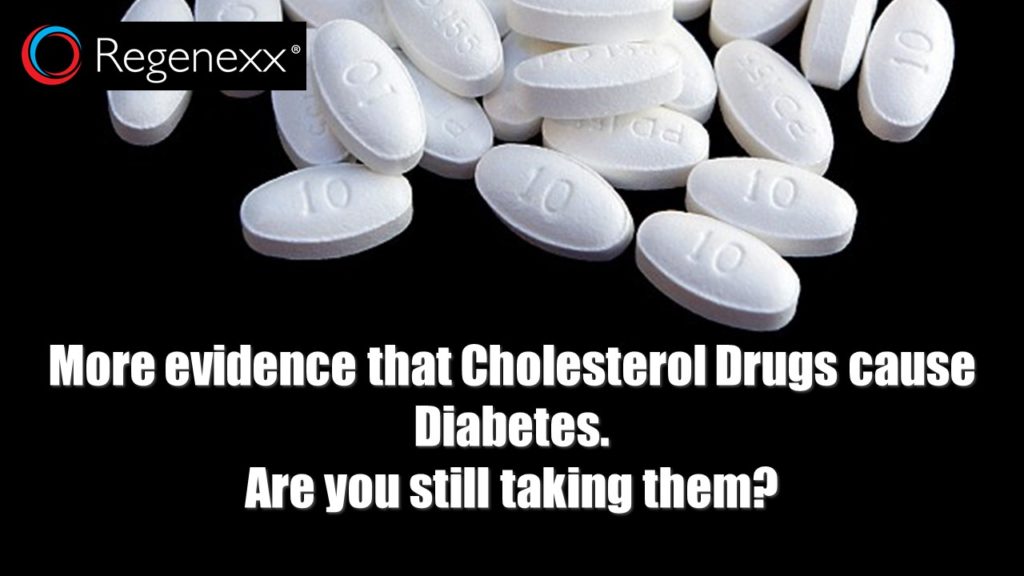More Research Confirms Statin Drugs Cause Diabetes!
The pharma-university industrial complex has had a rough few years when it comes to fat and cholesterol. After they and Madison avenue got every American paranoid that total cholesterol was an important risk factor for heart disease, the concept got recently axed. However, since the “fix” for high cholesterol was statin drugs, a multi-billion dollar runaway best seller, they invented new, widely criticized guidelines, that push even more drug sales. A recent study adds to others that show that statins markedly increase the risk for diabetes, a major risk factor for heart disease!
Statins are cholesterol lowering drugs that are handed out like candy by family practice and internal medicine physicians nationwide. Suggesting that patients may not want to take them can be a bit like medical heresy. This is largely because of industry funded trials that seem to show that they can cut the relative risk (RR) of heart attacks by as much as one third to a half. However, this benefit is an FDA approved mathematical slight of hand, because in reality, statins only decrease heart disease risk by a lousy 1% over 3.5 years. You see the RR number was concocted to sell more drugs by Pharma by looking at the percentage drop in heart attacks from 3% to 2%. In other words, the creative interpretation of a large drop in cardiac events is a percentage of a percentage. Despite this clearly creative math, new research has begun to show that these drugs have a quite dangerous side effect – they cause more people to get diabetes. So having such a widely prescribed drug like statin drugs cause diabetes is a huge issue, since diabetes is the leading cause of heart disease.
The study was performed to rule out that the increased risk of diabetes seen with patients who take statins might be due to that fact that these patients tend to be sicker than those who don’t take the drugs. The researchers looked at 25,970 healthy adults, matching more than three thousand similar statin users and non-users. After adjusting for things that might mess up the comparison, those that took statins had an 85% higher risk of developing diabetes! They also had a 153% greater risk of developing serious complications from the disease. A finding that added fuel to the concept that these effects were likely caused by the drugs was the fact that there was a dose response effect – the more statins someone took, the more likely they were to develop diabetes.
The upshot? This is now one of many studies to show this statin-diabetes effect. Given the very weak positive effects of these drugs and the fact that diabetes is a major cause of heart disease and death, there is little rationale to take these drugs. So why are there still so many patients taking them? Well, you can see why in the medical news coverage for this study. This is from Medscape, quoting the researcher who performed the study: “I myself am a firm believer that these medications are very valuable for patients when there are clear and strict indications for them,” he said. “But knowing the risks may motivate a patient to quit smoking, rather than swallow a tablet, or to lose weight and exercise. Ideally, it is better to make those lifestyle changes and avoid taking statins if possible.” Huh? Your study showed a dramatic increase in serious diabetic complications in patients who take these drugs and you’re still a believer? The sad reality of the pharma-university industrial complex is that a university professor outright opposing a big Pharma best seller is not a healthy career move.

NOTE: This blog post provides general information to help the reader better understand regenerative medicine, musculoskeletal health, and related subjects. All content provided in this blog, website, or any linked materials, including text, graphics, images, patient profiles, outcomes, and information, are not intended and should not be considered or used as a substitute for medical advice, diagnosis, or treatment. Please always consult with a professional and certified healthcare provider to discuss if a treatment is right for you.

